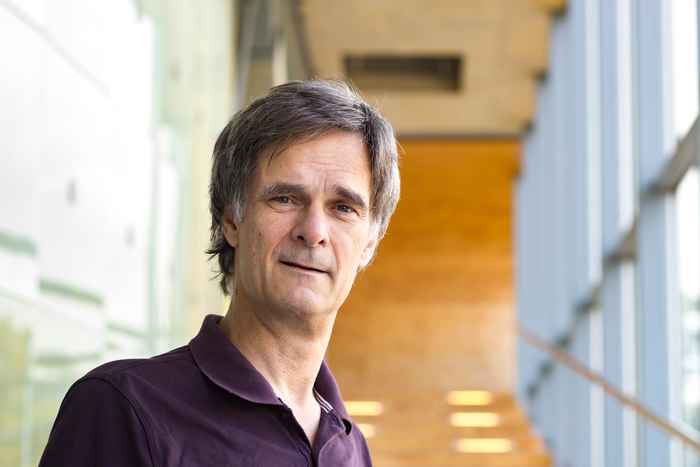Environmental Economics: mapping and overcoming obstacles to climate policy
30 June 2021

Global warming has occupied society, scientists and the business community for many decades now. Although research into the issue is going on all the time, our economic system has not even come close to effectively limiting greenhouse gas emissions. Moreover, there is a lack of climate policies that enjoy worldwide support.
As Van der Ploeg explains: 'Disruption to the climate means the need for a complete overhaul of our economy.' The nature of such an overhaul and the underlying climate policies are the subjects the ASE professor is investigating.
He has found various obstacles that illustrate the complexity of the climate issue and reinforce the social relevance of his chair. These obstacles go far beyond the purely economic aspect.
Limits of climate policy
First of all, problems with the climate are global: 'There are about 170 countries involved worldwide but, in fact, everybody is just sitting on the fence. While some countries are doing their utmost to reduce emissions, others use this as an excuse for doing nothing,' says Van der Ploeg.
He stresses that, from a historical perspective, rich countries have a duty to compensate poorer countries for the environmental policies they should all pursue. 'In the western world, we continue to reap the rewards of industrialisation even though we are responsible for the bulk of all emissions. Poor countries have never been able to benefit from the industrial progress we’ve made.'
Worse still, they are faced with the most serious consequences. 'A rising sea level and declining biodiversity: while England’s Sussex now makes better champagne than France thanks to climate change, the most vulnerable areas in Africa and elsewhere are being hit very hard.'
There are similar inequalities within societies. 'Rising costs affect lower income groups the most. A crucial part of my work is to see how you can build a political majority for your environmental policies. One such policy is to channel tax revenues back to lower income earners in such way that your own economy isn’t harmed.'
Compensating generations
Another major obstacle is the timescale: today’s generations are expected to make big sacrifices that will only serve tomorrow’s generations. 'An important topic I’m working on is how you make sure all generations are better off. What we see is that it’s best to allow government debt to rise now by financially compensating present-day generations. Ultimately, you can hand the bill to those who actually benefit from a cleaner earth. This boils down to fairly large transfers from future to current generations.'
Van der Ploeg is struck by the fact that 'politicians act as if there’s a deadlock but that’s simply not the case. It’s possible to come up with a policy that benefits all generations and all countries.'
The green paradox
The behaviour of politicians is indeed a stumbling block to effective climate policy. What’s more, their short-term focus and inaction actually give rise to a 'green paradox'. 'If you spend your entire time preaching that you’re going to implement strict climate policies, then many oil producers and gas field owners will rush to mine all their fossil fuels. Emissions will then go up rather than down so you actually speed up global warming! One of my tasks is to calculate how much the delay in action costs us. It’s incredibly expensive. And yet we, together with the government, have been talking about it for two decades. In contrast to countries like Sweden, we refuse to take political responsibility for the climate.'
Climate scepticism leaves a mark
Engaging in politics and creating support for policies is about narratives, about storytelling. 'If you’re good at it, people will follow your lead. And, unfortunately, they will do so even if your stories can be refuted. But we see that the mechanism works counterproductively when it comes to the climate: people no longer believe in science. The same goes for immigration, refugees and vaccines. This creates a perfect breeding ground for populists who argue that scientists just don’t get it.'
Climate sceptics benefit from the fact that institutions like science are being called into question. These climate deniers do not have a well-founded story themselves but they do not need one, as is clear from research by Van der Ploeg among others. The only thing climate scepticism needs in order to grow are fellow sceptics.
'With techniques like machine learning, we study worldwide news coverage of the climate. What it shows is that, when more people believe the stories told by climate sceptics, even more people start to believe them.' In Van der Ploeg’s eyes, conveying the right climate story is therefore pivotal.
Transcending scientific disciplines
If all these obstacles are to be overcome, all parts of the economy are needed. International economy, public finance as well as other techniques from finance. We are after all dealing with enormous uncertainty.' Other essential disciplines include physics, chemistry, biology, psychology and political science.
Working together on sustainability and tackling a worldwide problem make the Environmental Economics chair extremely interesting and socially relevant, according to Van der Ploeg. 'And let’s face it, as a scientist, wouldn’t you rather tell your family and friends about research that deals with real issues and helps solve society’s most pressing problems?'